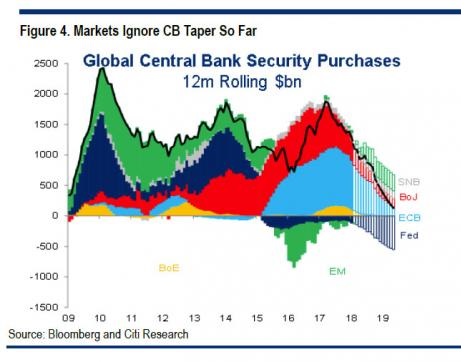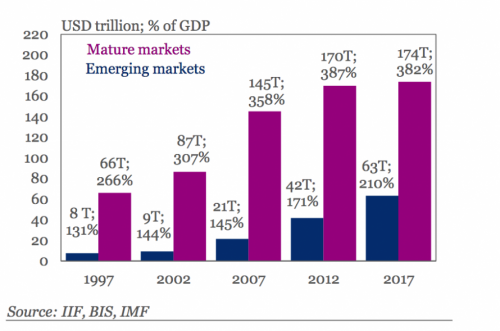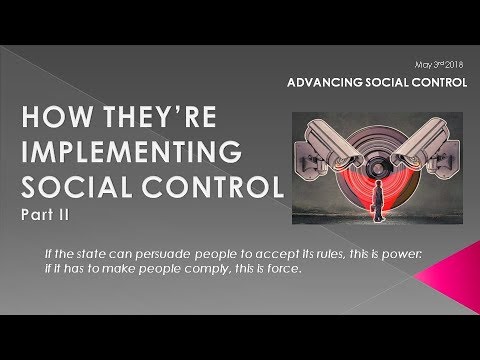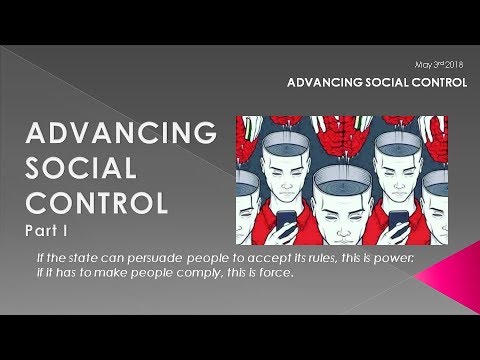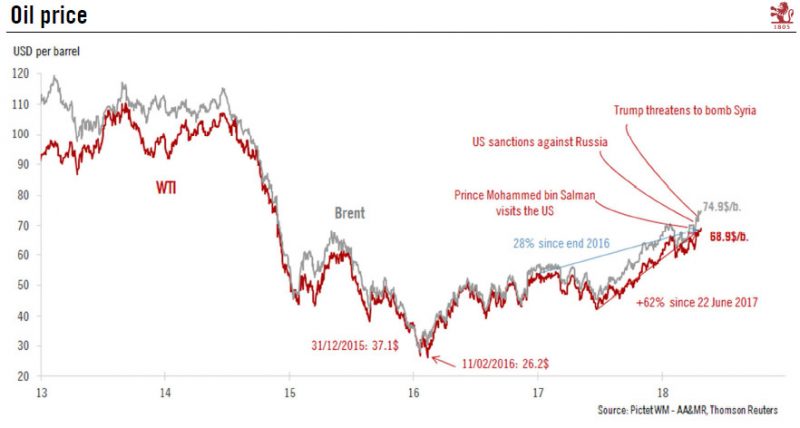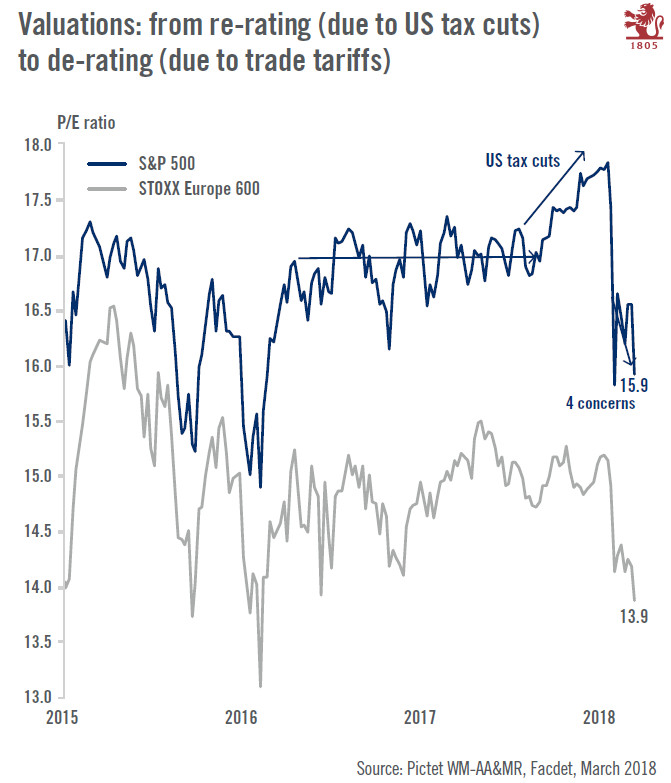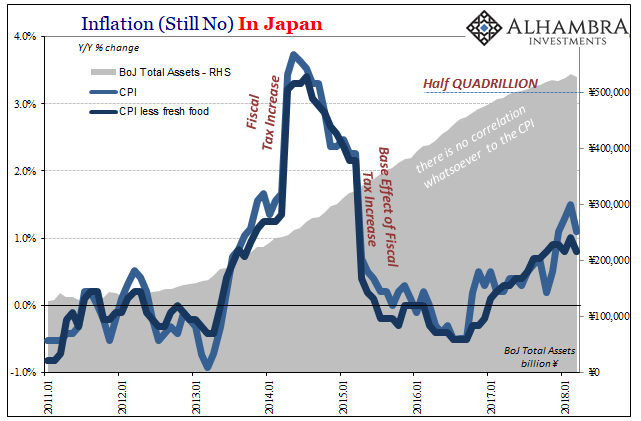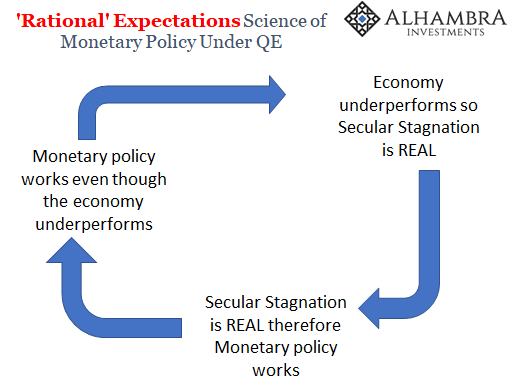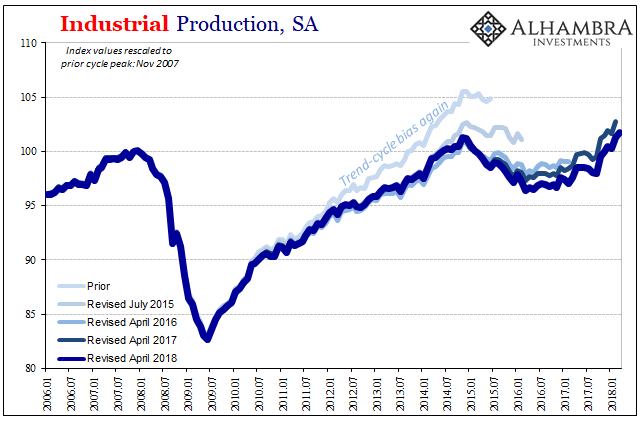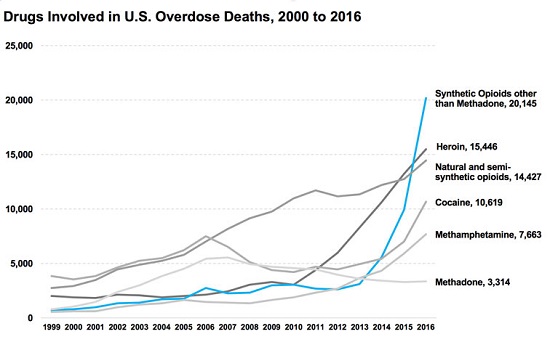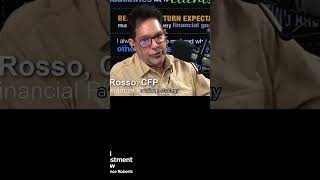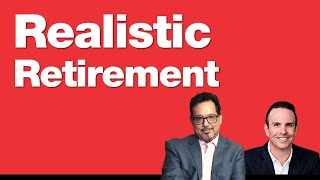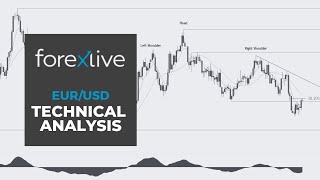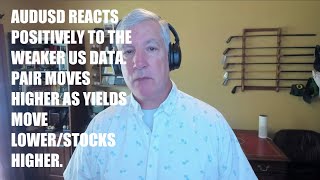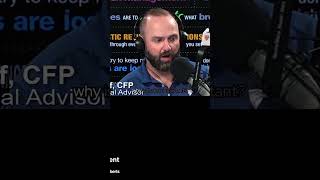Category Archive: 5) Global Macro

Ireland: divided by abortion | The Economist
Abortion is banned in Ireland in almost all circumstances, including rape and incest. On May 25th voters will have their say in a referendum that could repeal the ban. Click here to subscribe to The Economist on YouTube: https://econ.st/2FEY1tD Daily Watch: mind-stretching short films throughout the working week. For more from Economist Films visit: https://econ.st/2FE3sJB …
Read More »
Read More »
Bi-Weekly Economic Review: Oil, Interest Rates & Economic Growth
The yield on the 10 year Treasury note briefly surpassed the supposedly important 3% barrier and then….nothing. So, maybe, contrary to all the commentary that placed such importance on that level, it was just another line on a chart and the bond bear market fear mongering told us a lot about the commentators and not a lot about the market or the economy.
Read More »
Read More »
Emerging Markets Preview: The Week Ahead
EM FX came under intense selling pressures last week. The worst performers were ARS, TRY, and MXN while the best were PHP, KRW, and TWD. US rates are likely to remain the key driver for EM FX, and so PPI and CPI data will be closely watched this week. We believe EM FX will remain under pressure.
Read More »
Read More »
Emerging Markets: What Changed
Bank Indonesia is taking measures to stabilize the local bond market. The Philippine central bank is tilting more hawkish. Czech National Bank cut its inflation forecasts. The Turkish government is loosening fiscal policy to drum up popular support. S&P downgraded Turkey to BB- with stable outlook. Argentina officials are taking significant measures to support the peso. Brazil central bank made a subtle shift in its FX intervention strategy.
Read More »
Read More »
Taking the Pulse of a Weakening Economy
Corporate buybacks provide the key analogy for the economy as a whole. Central banks have been running a grand experiment for 9 years, and now we're about to find out if it succeeds or fails. For 9 unprecedented years, central banks have pushed the pedal of monetary stimulus to the metal: near-zero interest rates, monumental purchases of bonds, mortgage-backed securities, stocks and corporate bonds.
Read More »
Read More »
Was Karl Marx right? | The Economist
Karl Marx remains surprisingly relevant 200 years after his birth. He rightly predicted some of the pitfalls of capitalism, but his solution was far worse than the disease. Click here to subscribe to The Economist on YouTube: https://econ.st/2FEY1tD Daily Watch: mind-stretching short films throughout the working week. For more from Economist Films visit: https://econ.st/2FE3sJB Check …
Read More »
Read More »
What Lies Beyond Capitalism and Socialism?
The status quo, in all its various forms, is dominated by incentives that strengthen the centralization of wealth and power. As longtime readers know, my work aims to 1) explain why the status quo -- the socio-economic-political system we inhabit -- is unsustainable, divisive, and doomed to collapse under its own weight and 2) sketch out an alternative Mode of Production/way of living that is sustainable, consumes far less resources while providing...
Read More »
Read More »
MACRO ANALYTICS – 05-03-18 – How They’re Implementing Social Control – Part II w/Charles Hugh Smith
VIDEO NOTIFICATION SIGN-UP: http://bit.ly/2y63PvX-Sign-Up Thank you to all Macro Analytics/Gordon T Long YouTube followers. I will continue to add the following message to each video, which many have already seen to help all of those that haven’t learned of the new update. Thank you again for your support! To all Macro Analytics/Gordon T Long subscribers: …
Read More »
Read More »
MACRO ANALYTICS – 05-03-18 – Advancing Social Control – Part I w/Charles Hugh Smith
VIDEO NOTIFICATION SIGN-UP: http://bit.ly/2y63PvX-Sign-Up Thank you to all Macro Analytics/Gordon T Long YouTube followers. I will continue to add the following message to each video, which many have already seen to help all of those that haven’t learned of the new update. Thank you again for your support! To all Macro Analytics/Gordon T Long subscribers: …
Read More »
Read More »
Is Emmanuel Macron the EU’s most powerful politician? | The Economist
Emmanuel Macron has revolutionised French politics. Now the French president is trying to galvanise the EU and he is having significant impact on the global stage. Has he usurped Angela Merkel as the EU’s most powerful political force? Click here to subscribe to The Economist on YouTube: https://econ.st/2FEY1tD Daily Watch: mind-stretching short films throughout the …
Read More »
Read More »
Where next for oil prices?
On 19 April, the price of a barrel of oil reached USD69.56 for West Texas Intermediate (WTI) and reached USD75.27 for Brent, today, the highest price since 2014. Since 9 April, oil prices have been significantly above their longterm fundamental equilibrium value. Three factors explain what has happened.
Read More »
Read More »
Exploring and protecting the Antarctic | The Economist
The Antarctic is one of the least explored places on the planet. For the first time ever a marine biologist has ventured to unexplored parts of the seabed in a submarine. Her discoveries have shocked the scientific community and could pave the way for the biggest no-fishing zone in the world Click here to subscribe …
Read More »
Read More »
House View, April 2018
Pictet Wealth Management's latest positioning across asset classes and investment themes. While macroeconomic and corporate fundamentals still favour risk assets, challenges have been steadily increasing and a lot of good news is already priced into valuations. We sold part of our equity overweight during the early March rally.
Read More »
Read More »
Transitory’s Japanese Cousin
Thomas Hoenig was President of the Federal Reserve’s Kansas City branch for two decades. He left that post in 2011 to become Vice Chairman of the FDIC. Before that, Mr. Hoenig as a voting member of the FOMC in 2010 cast the lone dissenting vote in each of the eight policy meetings that year (meaning he was against QE2, too). This makes him, apparently, the hawk of all hawks.
Read More »
Read More »
Emerging Markets: Week Ahead Preview
EM FX ended Friday on a firm note, capping off a generally softer week overall. TRY and PHP were the best performers last week, while CLP and ZAR were the worst. US core PCE, ISM manufacturing, FOMC meeting, and jobs data all pose risks to EM this week. We remain a bit defensive on risk assets in general now.
Read More »
Read More »
La dette bat des records et menace l’économie mondiale
L’endettement mondial, qui a atteint 164.000 milliards de dollars en 2016 et représente 225% du PIB mondial, représente un risque pour l’économie, a prévenu mercredi le FMI. L’endettement mondial atteint des records, sous l’impulsion de la Chine, au point de dépasser largement les niveaux de 2009, juste après la faillite de la banque Lehman Brothers, et de représenter un risque pour l’économie, a prévenu mercredi le FMI.
Read More »
Read More »
The Science of Japanification
The term itself gives it away. They called it quantitative easing for a specific reason. Both words mean to convey substantial concepts. The first part, quantitative, was used because it sounds deliberate, even scientific. It implies a program where great care and study was employed to come up with the exact right amount. It’s downright formulaic, where you intend that by doing X you can predictably create Y.
Read More »
Read More »
Bi-Weekly Economic Review: Interest Rates Make Their Move
How quickly things change in these markets. In the report two weeks ago, the markets reflected a pretty obvious slowing in the global economy. In the course of two weeks, what seemed obvious has been quickly reversed. The 10-year yield moved up a quick 20 basis points in just a week, a rise in nominal growth expectations that was mostly about inflation fears.
Read More »
Read More »
Why The Last One Still Matters (IP Revisions)
Beginning with its very first issue in May 1915, the Federal Reserve’s Bulletin was the place to find a growing body of statistics on US economic performance. Four years later, monthly data was being put together on the physical volumes of trade. From these, in 1922, the precursor to what we know today as Industrial Production was formed. The index and its components have changed considerably over its near century of operative history.
Read More »
Read More »
Our Strange Attraction to Self-Destructive Behaviors, Choices and Incentives
Self-destruction isn't a bug, it's a feature of our socio-economic system. The gravitational pull of self-destructive behaviors, choices and incentives is scale-invariant, meaning that we can discern the strange attraction to self-destruction in the entire scale of human experience, from individuals to families to groups to entire societies.
Read More »
Read More »













